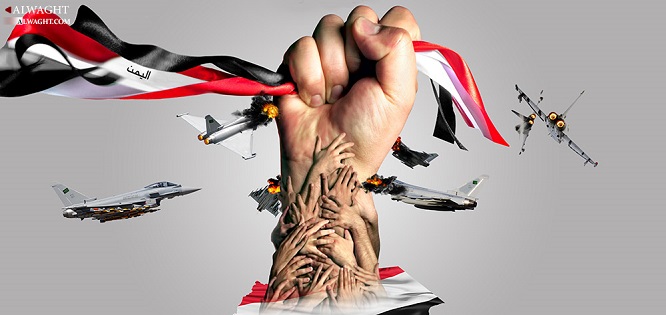Spokesman to Yemen’s Ansarullah movement Mohammad Abdulsalam said that the movement has reached an agreement with the General People’s Congress (GPC) party to defuse the tensions recently erupted between the two Yemeni sides.
The news reports from Yemen suggest that the accord has been obtained following a meeting gathering together Saleh al-Sammad, the president of the revolutionary Supreme Political Council of Yemen, and a delegation from the GPC led by Aref al-Zouka, the secretary general of the party. Ansarullah’s official spokesman was also present at the meeting.
The Yemeni groups reportedly agreed that there was a need to clear the sticking points and return to the friendly relationship they had earlier.
Cause of the recent rift
Before Saudi Arabiaís aggression on Yemen in March 2015, Ansarullah movement also known as Houthis and the GPC, led by the former President Ali Abdullah Saleh, were far from being called ideological or strategic allies. Even during the Salehís presidency, the Yemeni movement underwent attacks launched by the national army.
Despite the historical differences between Ansarullah and the GPC, Saudi-led Arab coalition intervention brought the two Yemeni parties under an alliance. The two sidesí partnership reached its climax when they joined their forces to form the Supreme Political Council (SPC) in late July 2016, with 10 members from both partners.
According to the last year deal, the SPC serves as an executive body for the country in the time of Saudi aggression. Each side introduced five members, and agreed to allow the presidency of the war-time interim administration to alternate between them in one-year terms. The SPC initiated work for the first year while led by Ansarullah, and after one year, the presidency was transformed to the Saleh’s GPC in accordance with the earlier agreements.
Meanwhile, Saudi Arabia and the UAE launched a campaign to sow division between the leading Yemeni parties as they began process to hand over SPC’s presidency to the GPC. Unofficial sources suggested that the Arab efforts resulted in an agreement of Saleh’s son with the UAE and Saudi Arabia.
The news about Ahmed Salehís agreement with Abu Dhabi and Riyadh in a time when his father’s party took rule in the SPC triggered suspicion, followed by tensions, between Ansarullah and the GPC. The pro-Saudi Arab-language news networks such as Al Arabiya and Sky News Arabia fast covered the rifts within a propaganda campaign aimed at widening the gaps. But the recent agreement foiled the anti-Yemeni coalition’s plot to apparently push the Yemeni allies into deadly clashes.
The two parties highlighted the necessity for an accord amid an understanding of the country’s sensitive war conditions. The ex-president has reportedly stressed the point that he was ready as before to send his loyal forces to the front lines to fight against the Riyadh-led Arab coalition.
The recent bilateral deal is expected to strengthen the unity of the Yemeni home front, an initiative frustrating the Saudi-led Arab bloc to crack the Yemen’s revolutionary union.
A deal serving all Yemenis
The details of the terms of the agreement remain undisclosed, but the two sidesí emphasis on the significance of setting aside all sorts of differences indicates that they have both developed awareness about urgency of preserving the national cohesion at any cost while the country is subject to foreign aggression, now in its third year.
The deal will hold control of the strategic a-Hudaydah port city in south in the hands of the Yemeni alliance. The major port, predominantly held by the pro-Saleh forces, plays role of the only lifeline addressing minimum needs of the capital city Sanaa and other cities controlled by the revolutionary forces. The Arab coalition imposed a sea, air, and ground blockade on Yemen in the beginning of the war.
Analysts suggest that the attempt to split the Yemeni allies comes as part of the Riyadhís intention to disconnect al-Hudaydah port from Sanaa. Thwarting the plan will make the port, 220 kilometers from the capital city, remain ruled by the allied revolutionaries. This success will allow the allies to restore their resistance against the Arab invaders as strong as before.
The media and state psychological warfare launched to press the tensions between Ansarullah and the GPC towards escalation drew reaction of Saleh who, denying existence of any deep gaps, expressed his resolution to back the front line fight against the invading Saudi forces. Saleh’s support pledge was described as an empowering measure shoring up the army’s military strength on the battlefields.
The deal also restores focus of the Yemeni forces on even more intensified missile attacks on targets deep into the Saudi Arabian territories in response to the relentless bombing campaign.
LINK: https://www.ansarpress.com/english/8402
TAGS:































 Violation of the sovereignty and rights of afghan citizens by America
Violation of the sovereignty and rights of afghan citizens by America




